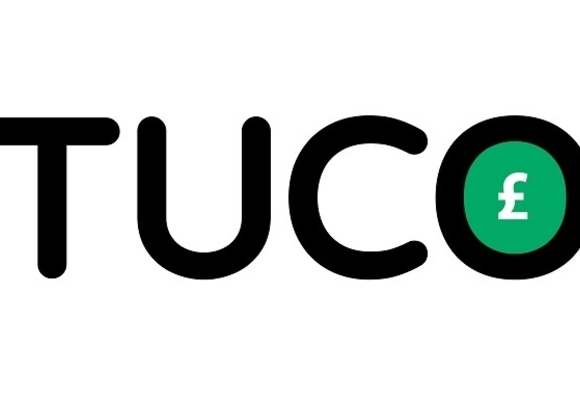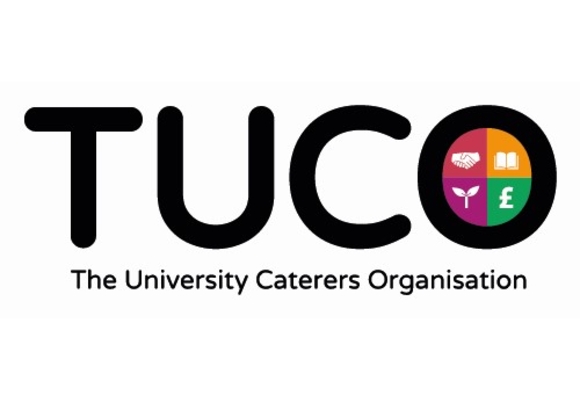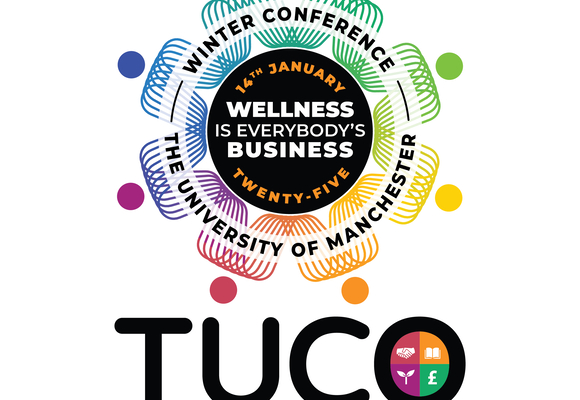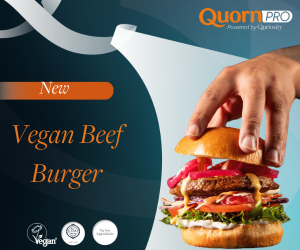Exploring the theme of ‘Sustainable Success’ the one-day event focused on helping public sector caterers deliver sustainable catering services whilst remaining commercial. Matthew White, TUCO Chair comments: “What a thrilling and inspiring event this was. This was an opportunity to meet people running companies which have set out to put planet before profit yet have still delivered commercially. The take-homes for our members are huge. We saw speaker after speaker deliver innovative ways to be both sustainable and successful.”
With a stellar line up of speakers secured, the conference was opened by TUCO CEO Mike Haslin, recently listed as one of Public Sector Catering’s Most Influential Top 20. Highlights include Louise Whitaker from Bewley’s who inspired delegates with an in-depth look at coffee cups and plastic. Whitaker suggested that despite ‘throwaway living’ being more unpopular than ever, 40% of plastics still go to landfill with huge consequences for human and marine life. Exploring two broad approaches, that of industrial and personal, she signalled high-level behavioural change strategies are needed to make a true transition to plastic free.
She cited several successful interventions within university settings. These included the outright ban of disposable cups by Harper Adams University, who instead charge £1 for a reusable one, and the use of plastic taxes on disposable coffee cups by The University of Winchester and The University of Reading, which directly created and increase in demand and use of reusable coffee cups.
Hugh Jones, programme area manager for Food Waste Prevention in Wales at WRAP, discussed the broader issues of food waste, highlighting the organisations mission to re-invent, re-think and re-define our attitude to waste. They believe the UK’s hospitality and food service sector throws away an astonishing 1million tonnes of food a year of which 75% is avoidable.
Jones was followed by Maciek Kacprzyk co-founder of Flawsome Drinks who explored wonky and waste fruit. Their research found 3.7trillion apples go to waste globally every year, and a third of all food is wasted due to aesthetic standards or supply chain inefficiencies. They shared their vision of a world where food isn’t rejected due to how it looks, encouraging delegates to ‘save the rejected and the planet too’ by adopting some of their strategies.
Ben Greensmith, UK country manager at Tony’s Chocolonely addressed social value. Taking an in-depth look at the cocoa trade he explained the extraordinary story behind Tony Chocolonely, and how to raise awareness of child slavery in the cocoa industry, Tony himself tried to get arrested for eating chocolate that was a product of the slave trade. His endeavour failed to secure a conviction but gave international prominence to the state of the industry. They believe 90% of children working on cocoa farms are working illegally, with an estimated 30,000 children trafficked as slaves and separated from their families.
Not only did the company go on to create their own slave-free supply chain, but they stand by the principle they are not just a chocolate company but an impact company. With five main principles in mind they have dedicated themselves to being able to trace all their ingredients, paying higher prices to farmers, improving farmers’ productivity and encouraging them to adopt modern practices and diversify their crops, and investing in long-term commitment and farm cooperatives to empower farmers to work together.
Three more speakers, Helen Harwatt an environmental social scientist at Harvard University, Dr Marco Springmann a senior researcher in population health from Oxford University and Nick Waring from Jimmy’s Iced Coffee also spoke on sustainable issues.
The speaker sessions were closed by Randy Rampersad, founder of The Green Vic and The Better World Group, who delivered an inspiring presentation on sustainability and social value. His journey into sustainable success started with his hugely successful ethos of planet over profit. Aiming to be the ‘world’s most ethical pub’, Rampersad shared how he ran a commercial operation with a zero to landfill approach, one which only used ethical suppliers and employed staff from vulnerable backgrounds.
In keeping with the sustainable theme, TUCO went paperless at the conference, instead providing a bespoke app for delegates use. They also donated £1500.00 to Regrow Borneo, to help offset the  conference carbon footprint. Regrow Borneo helps organisations balance the impact of unavoidable travel carbon emissions by tree-planting in the Lower Kinabatangan rainforest, Sabah, Borneo.
conference carbon footprint. Regrow Borneo helps organisations balance the impact of unavoidable travel carbon emissions by tree-planting in the Lower Kinabatangan rainforest, Sabah, Borneo.
To close the conference, TUCO Chair Matthew White released the last of this year’s TUCO Intelligence Food and Drink Trend reports, which is available to members only here.
View a selection of the day's photos here.
View the presentation deck from the Conference here.
Following the one-day conference, delegates could participate in the TUCO Cardiff Study Tour with a series of restaurant and site visits in and around Cardiff. S4C in Wales also attended and you can watch their recap below:









